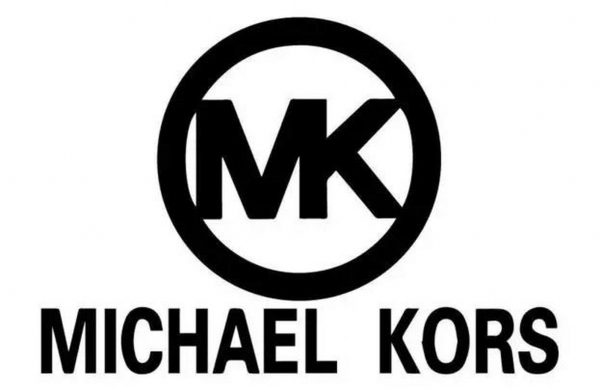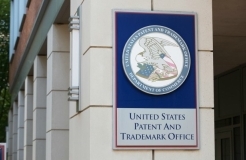Did not receive verification mail? Please confirm whether the mailbox is correct or not Re send mail

IPR Daily
- 2017-04-27 14:08:53
Why the Unified Patents Model Would Not Work in China
By Erick Robinson
I have received a number of inquiries from friends and readers recently regarding Unified Patents and whether their model of attacking patents would be welcome in China. I do not represent Unified Patents or any party that has been attacked by Unified, but I do have some thoughts on this issue.
Unified Patents is a relatively new form of patent troll that works as a “Troll of Trolls” or “ToT.” They file IPRs (inter-partes reexamination requests) to kill patents. While they purport to only attack “bad patents,” their definition of a “bad patent” is simply any patent asserted against their clients. So who are their clients? Good question – that is a large part of the problem. They keep most of their clients’ identities secret. Unified does identify a handful of their members on their website such as Adobe, Google, NetApp, Roku, and Salesforce.
However, in litigation before the PTAB Unified has (so far successfully) claimed that its member list is a trade secret and should not be disclosed, even in IPR proceedings and even to the owner of the patent Unified is seeking to invalidate. The only persons allowed to see the member list in the Dragon IP LLC Case before the PTAB were experts not employed by the patent owner. It seems remarkably unfair for a patent owner to not even know who is the funding source behind an effort to kill their patents that they rightfully obtained. But that is the state of the US patent system right now.
So while no one knows the list of members, it is likely to include many of Silicon Valley’s largest companies. How is this different from what Kingston has asserted Samsung and WiLAN are doing in the US? Good question. Kingston’s main assertion appears to be that NPEs can provide “shade” for Samsung’s patent attacks against Kingston. While my understanding is that the assertions underlying Kingston’s complaint is nonsense, Unified Patents is, in fact, working for secret clients to attack patents held by competitors and litigation opponents.
Why do these companies not want to file IPRs on their own? Another good question, and another problem. Among other reasons, Unified Patents’ clients do not want to be seen as killing innovation via attacking patents. Rather, they pay Unified Patents to do their dirty work. Plus, if Google files an IPR on a particular patent and is unsuccessful (unlikely given the PTAB’s “death squad for patents” label) then it would look bad for Google (notwithstanding the Federal Circuit’s ruling in Shaw Industries) to again challenge the patent in litigation. Unlike an administrative PTAB judge who likely will eventually go back to private practice (to represent the large companies filing the IPRs), a jury would see that “a second bite at the apple” is unfair. That is why Unified Patents’ clients are so scared of juries.
In short, Unified Patents makes money by attacking innovation. Unified would say it is trying to defeat the so-called “patent trolls” (see the pitch on their website). But even when true “trolls” – which I define as parties that filed suspect lawsuits seeking damage amounts far less than litigation costs – existed, at least they were on the side of innovators. The troll entities may have been problematic, but they were representing inventors. The original “patent troll” definition was non-practicing entities, or NPEs. Unified and their supporters would say that any company that does not produce any actual product should not be involved in the patent system. But this is exactly what Unified does!
Unified Patents is an NPE. It creates nothing and produces no hard product. Worse yet, it is on the wrong side of innovation. When Unified Patents kills patents in the name of the biggest of the big corporations, they are siding against innovation. This makes them worse than the patent trolls ever were. Thus, the term Troll of Trolls or ToT. For those who are upset by this, recall that when Kyle Bass attacked pharma patents to lower costs of prescription drugs, he was maligned as a troll. But Bass was targeting large companies that have on their side billions of dollars and significant market leverage. The reason so many large tech companies are anti-patent is that they simply do not need patents since they can squash small inventors with their cash reserves and cross-license with other tech behemoths.
As you can tell, I am not a fan of what Unified Patents is doing: killing innovation on behalf of huge companies and allowing such companies to remain anonymous. The U.S. has been killing patent rights for the last ten years, and Unified Patents’ existence is merely symbolic of the stance that our government has taken: for them, BigCo pays better than small inventors.
But China is different. Here, a mercenary third party attacking innovation via patents is problematic. China, unlike America, has made innovation a top priority. China’s government has also, over the last few years, created the best patent enforcement environment in the world. Unlike the U.S., that makes decisions based on the next fiscal quarter, the Chinese government plays a long game. They make plans of 5, 10, and 25 years. For instance, while China’s economic growth has “slowed” (the quotation marks are because the United States would be euphoric with half of China’s 6.5% growth), this is because such a lull is a natural consequence of a shift from a manufacturing-based to an innovation- and consumer-based economy.
Because China thinks long-term, its government will be very unlikely to accept attacks on patents by proxy – especially by a foreign company such as Unified. First, patents are essential to China’s growth as a technology powerhouse. Chinese companies are no longer the copycat wannabes of yesteryear. They are leading the world in many areas of technology. Not only are they now directly competing with foreign companies, they are beating their foreign competitors. Huawei, ZTE, Alibaba, Baidu, Tencent, Xiaomi, Oppo, Vivo, Haier, and many others are not just more more efficient, they are better. These new hometown heroes need patent protection, as do the next generation of Chinese innovators yet to be created. The Chinese government is not going to be happy if a foreign Troll of Trolls comes in to kill patents on behalf of American companies.
I can hear you thinking, “But what about NPEs in China?” Well, for one thing, NPEs are absolutely necessary to China’s continued tech growth and dominance (see my additional articles describing this here and here). China’s government and courts are not likely to take kindly to any action by a foreign ToT, at least regarding NPEs that are doing the right thing and are acting as a Friend of China. Additionally, the large Chinese tech companies in China are already working with the “evil” NPEs that Unified Patents and its clients want to destroy in several ways. Further, although there are no major Chinese-owned NPEs at present, that will change within the next year.
Most important, though, is the very nature of the Unified Patents Model. The Chinese Anti-Monopoly Law and China’s Anti-Monopoly Agencies forbid unfair manipulation of markets via misuse of patents. Unified Patents’ refusal to name its clients and funding while attacking patents would likely be considered to be prima facie unreasonable. If Unified Patents were to file a validity challenge in China, it would probably be required to turn over its client list to the court (and possibly to the anti-monopoly agencies) and these clients would quickly become public. In fact, Unified would probably be required to inform the court for which party or parties it is acting. If Unified tried to be cute and say no one, the court could assume that it was acting for all of its clients. Then not only would Unified Patents itself be ripe for an antitrust and potential criminal investigation, but so would its then-public clients.
My guess is that clients of Unified Patents would not be interested in taking a risk of getting on the wrong side of the Chinese government (and possibly going to prison). While certainly none of these consequences are guaranteed, they are a plausible risk.
In the end, Unified Patents would probably fail miserably in China. If they – or other ToTs do engage the Chinese market, it will be interesting to see their executives (and possibly executives of their clients) threatened with prison. I’m always a fan of a little schadenfreude, so I hope they come on over. China is waiting.
Source: IPWatchdog
Editor: Camila (camila@iprdaily.com)
- I also said the two sentence
- Also you can enter 140words






